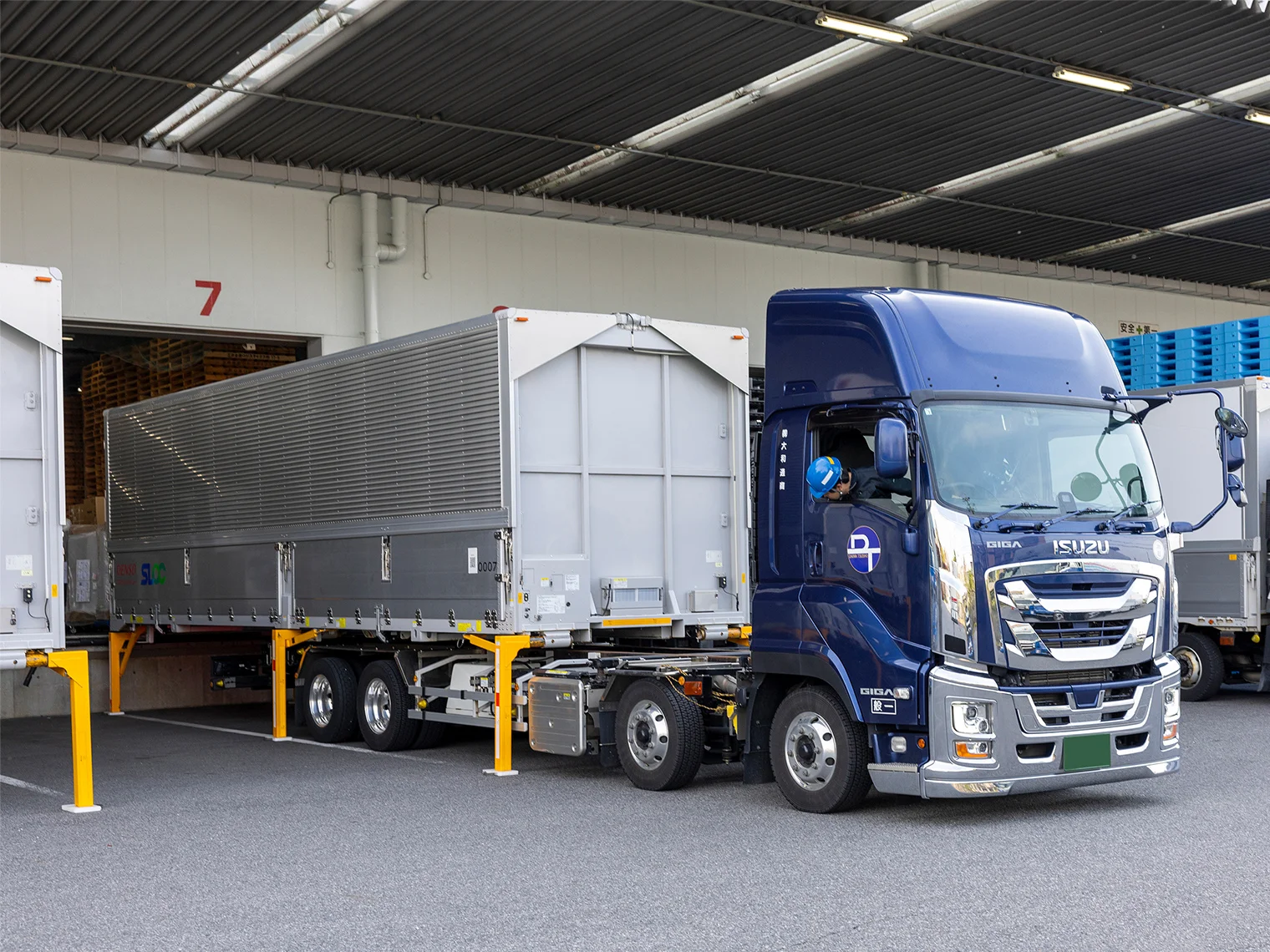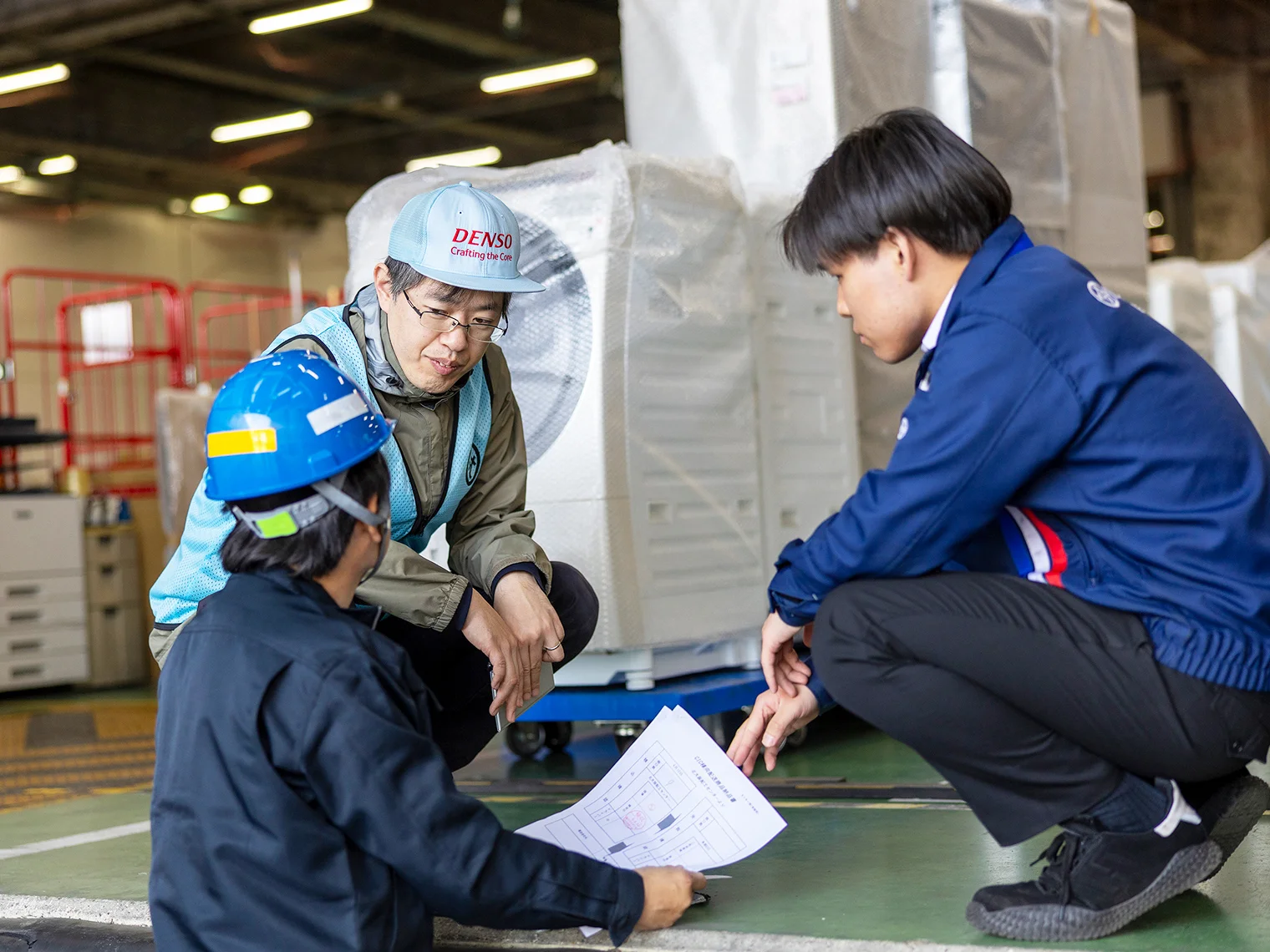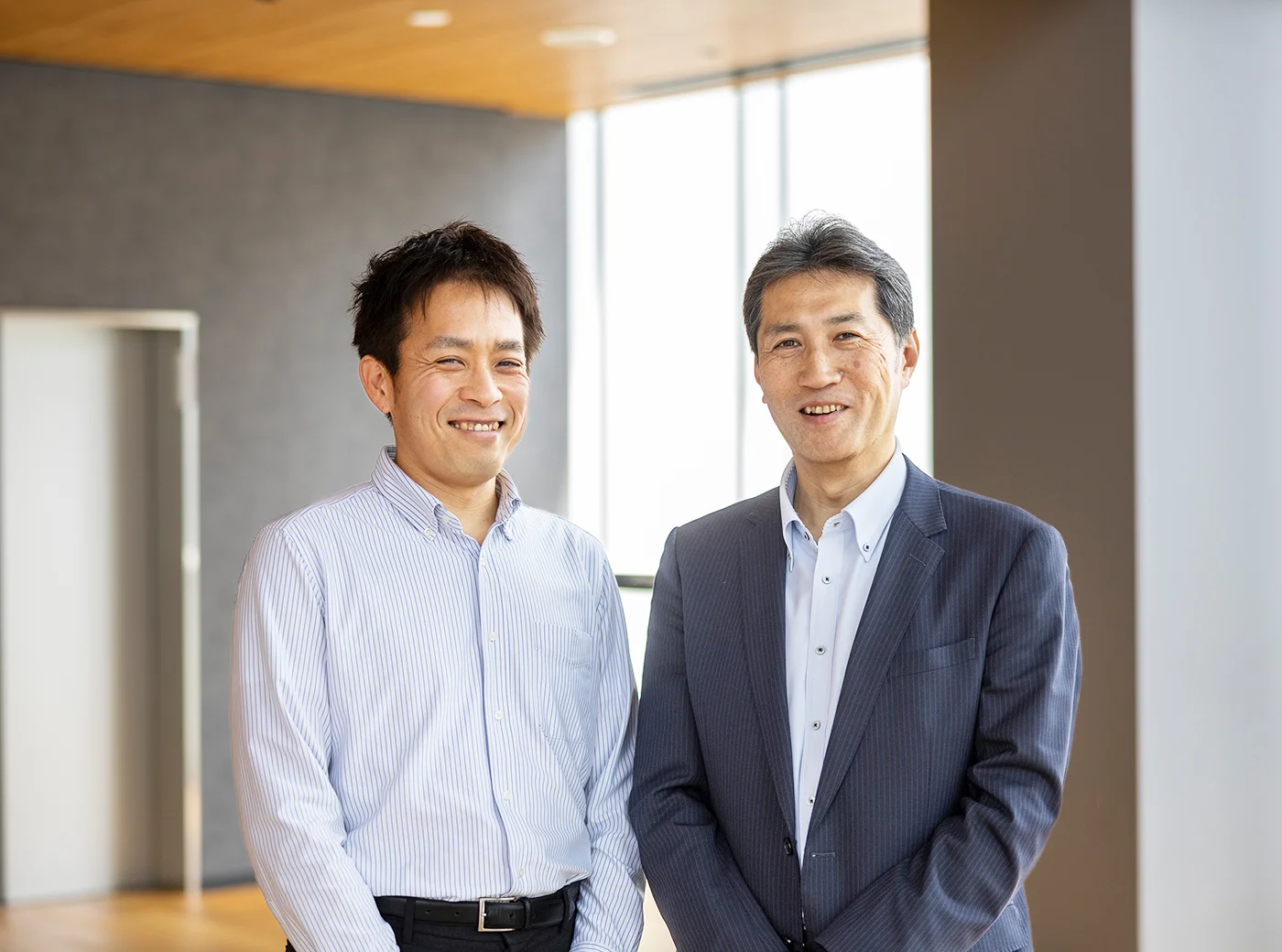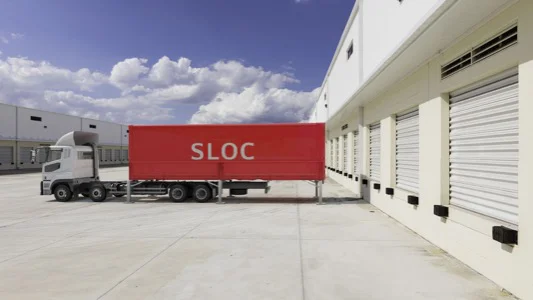Did you find this article helpful for what you want to achieve, learn, or to expand your possibilities? Share your feelings with our editorial team.


Nov 27, 2024
VISION & IDEASLOC Commercialization: Revolutionizing Logistics for the Well-being of People and Planet
From Concept to Reality: The Journey of Implementing SLOC, the Next-Gen Trunk-Line Relay Transport Service
The logistics industry, a cornerstone of our daily lives, faces a critical challenge: a looming driver shortage triggered by new regulations set to take effect in 2024. This crisis calls for innovative solutions that can alleviate the burden on drivers while improving transportation efficiency.
DENSO has developed the next-generation trunk-line relay transportation service, SLOC, or Shuttle Line of Communication. Designed to create a more worker-friendly and environmentally friendly logistics system, SLOC has undergone extensive demonstration experiments to ensure its viability as a commercial service.
In this article, we sit down with key team members driving the SLOC initiative to discuss the challenges they face in commercializing and implementing the service in society, as well as their vision for the future.
Contents of this article
Proving It Works: Realizing a New Form of Logistics Through Demonstration Results
The SLOC trunk-line relay transportation service is an innovative solution designed to tackle structural challenges in logistics. It leverages swap-body container vehicles with detachable cargo units, combined with a QR code-based operational management system. By optimally coordinating multiple shippers and carriers, SLOC aims to establish a new, more efficient method of transporting goods.
We have conducted a series of demonstration experiments—as part of the SLOC project since its inception in April 2019—to identify potential hurdles for commercialization and verify the system's effectiveness.
Notably, the demonstration experiment conducted in July 2023 confirmed that SLOC is a viable solution to address labor shortages and long working hours in the logistics industry while contributing to CO2 emission reductions and minimizing environmental impact.
The experiment involved seven companies, including five shippers, a company providing warehouse relay points, and DENSO. Over a 500 km stretch from the southern Kanto region to Kansai, SLOC reduced transportation lead times—expected to increase due to new regulations on overtime—by around 30%. The number of drivers required was reduced by 42%, and CO2 emissions were cut by 46% by minimizing empty return trips.

Building on the insights gained from the July 2023 demonstration experiment, another experiment was conducted in April 2024. A report on this experiment is available on DRIVEN BASE, so be sure to check it out.
Navigating Challenges on the Road to SLOC Commercialization
The SLOC project has gained significant momentum toward commercialization through a series of demonstration experiments. The project has now been integrated into the newly established Social Innovation Business Development Function Unit at DENSO to further accelerate its progress. The team actively works to increase the project's commercial viability to transform the logistics industry.
During this process, several challenges have become apparent. Toshiya Sakai, General Manager of Logistics Business Strategy in the Social Innovation Business Development Function Unit, outlines some key challenges:

"One of our challenges lies in optimizing mixed-load transport—the practice of combining shipments from multiple shippers. This requires maintaining a balanced cargo flow between east and west, securing appropriate locations for container exchanges in relay transport, and coordinating departure and delivery times. To achieve successful commercialization, we must address each of these challenges."

Another significant challenge is improving shipper, transport company, and container matching accuracy. Sakai continues:
"For SLOC to be practically viable, we need to coordinate with a larger number of shippers and transport companies while calculating optimal container handover timing. This involves developing optimal routes while accounting for numerous complex and variable factors—including the number of available trucks, driver rest periods, loading/unloading times, delivery time restrictions, and real-time traffic conditions. To address this challenge, we're collaborating with our AI R&I Division to leverage pseudo-quantum computing technology."
Kosuke Nomura from the Social Innovation Business Development Function Unit emphasizes that addressing these challenges requires confronting structural issues within the logistics industry:

“Transport companies have traditionally operated in silos, organized around specific industries or shippers, with established practices and vested interests. Introducing an innovative system alone won’t instantly resolve these issues.
The slow progress in cross-company mixed loading can be attributed to these deeply rooted industry dynamics.
This is precisely why DENSO's role as a coordinator is crucial—we work to mediate between multiple companies and identify win-win solutions, often through painstaking negotiation and practical problem solving. As neither a transport company nor a logistics provider, our position as a neutral third party enables us to build trust across different stakeholders and work toward optimization that transcends traditional industry boundaries."

A Vision for Logistics for the Well-being of Both People and Planet
SLOC aims to launch commercially by 2025, and the team continues to collaborate with various companies to create a positive cycle in the logistics industry.
Plans include integrating SLOC with other initiatives within the Social Innovation Business Development Function Unit.
Sakai envisions potential synergies:
"Looking ahead, it's likely that logistics vehicles will increasingly become electrified. This transition will require coordination of charging infrastructure, including real-time visibility into charging station availability and scheduling systems. Collaboration with teams developing technologies like battery SOH (State of Health) diagnostics for onboard battery health assessments and the battery passport, which uses QR codes and blockchain technology to ensure battery traceability, will be crucial."

Nomura, the originator of the SLOC concept, has a strong desire to see this project succeed.
"We've interviewed over 100 logistics companies, and the stories we've heard are heartbreaking. Many drivers work excessive overtime and rarely see their families. I remember a conversation with a driver during a review session following one of our demonstration experiments. They told me they had just had a child, and it was difficult to continue this job while cherishing family time. I still can’t forget the expression on their face as they told me this."
Nomura continues,
"Through this SLOC initiative, I want to transform truck driving into a profession everyone aspires to. Our goal is to create a logistics system that brings well-being to both the transportation professionals and our planet."
Logistics is the backbone of our convenient lifestyles. With deep gratitude to everyone working in this field, we are committed to delivering the latest technology and building systems that enhance comfort and efficiency. We will continue to elevate the value of SLOC, now and in the future.

Changing your "Cant's" into "Cans"
Where Knowledge and People Gather.


